Asian Hornet Action Team
Miscellaneous Information
The North Shropshire BKA Asian Hornet Action Team can assist with local requests for help in identifying Asian Hornet sightings, nest sites etc..
If it is possible and safe to do so try taking a photograph or even trapping a suspected Asian Hornet. However, do not under any circumstances disturb or provoke an active hornets’ nest.
Sightings can be sent in via the Asian Hornet Watch app or the online form using the links below:
However, you can also email us if you have a local sighting. Please send a photograph and location details to:
- This email address is being protected from spambots. You need JavaScript enabled to view it. or This email address is being protected from spambots. You need JavaScript enabled to view it.
Why Are Asian Hornets A Problem? [Click Here]
The Asian hornet is not native to the British Isles, it is an invasive species. This means that it does not have any natural predators here that would normally control its numbers and our native species are not adapted to coupe with its presence. When it comes to the honey bee, asian hornets when they have discovered a bee colony will then often arrive in numbers to take advantage of this easy food source. The large number of honey bees being lost will quite quickly disrupt the flow of pollen and nectar into the hive. The loss of bees and the reduction in food coming in can then lead to the starvation and death of young bee larvae, the queen bee in turn will reduce her egg laying. In this way the colony can soon go into decline with aging bees dying off and no young bees to take their place, leading to insufficient bees to carry out basic colony tasks. The weakened colony will become vulnerable to disease and robbing and if they survive will probably not be strong enough to survive winter.
Asian Hornet Identification/What to look out for (From the BBKA Website) [Click Here]
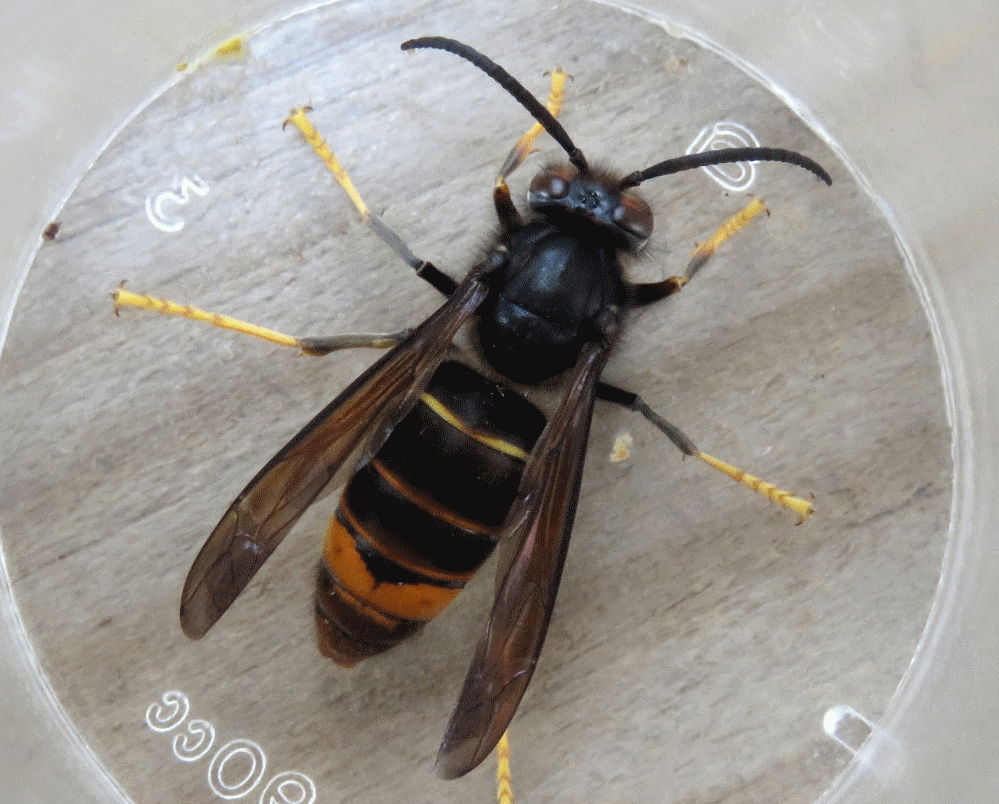
This picture is used with the kind permisson of David Walker
The Dungeness Bird Observatory
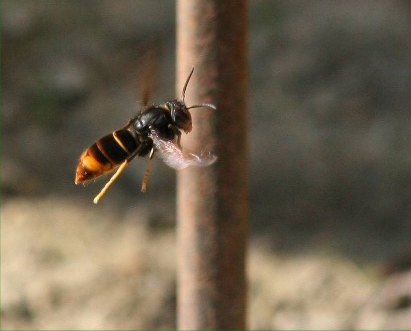
The picture is a detail from a photo on the BBKA website
The BBKA Website
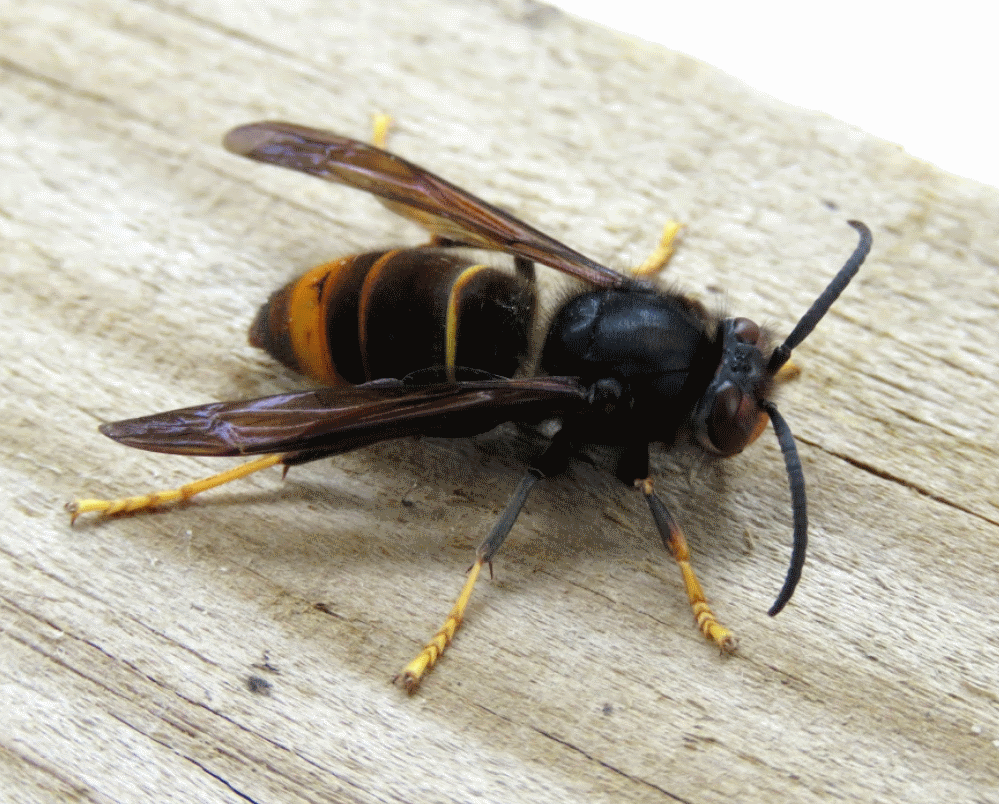
This picture is used with the kind permisson of David Walker
The Dungeness Bird Observatory
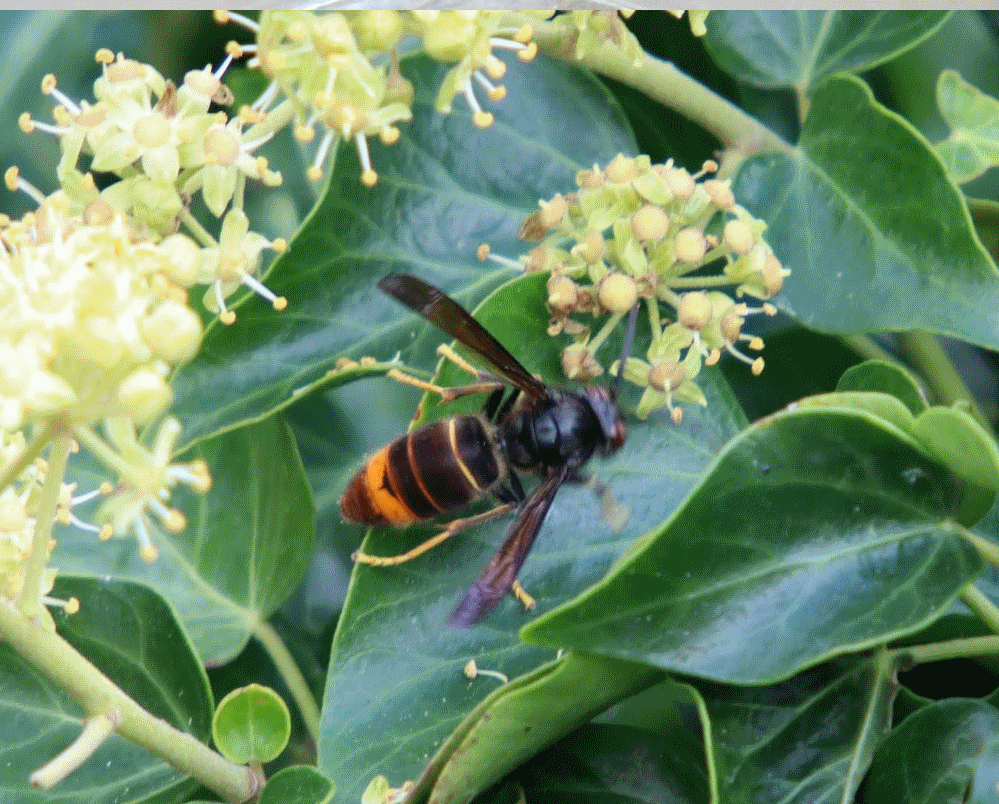
This picture is used with the kind permisson of David Walker
The Dungeness Bird Observatory
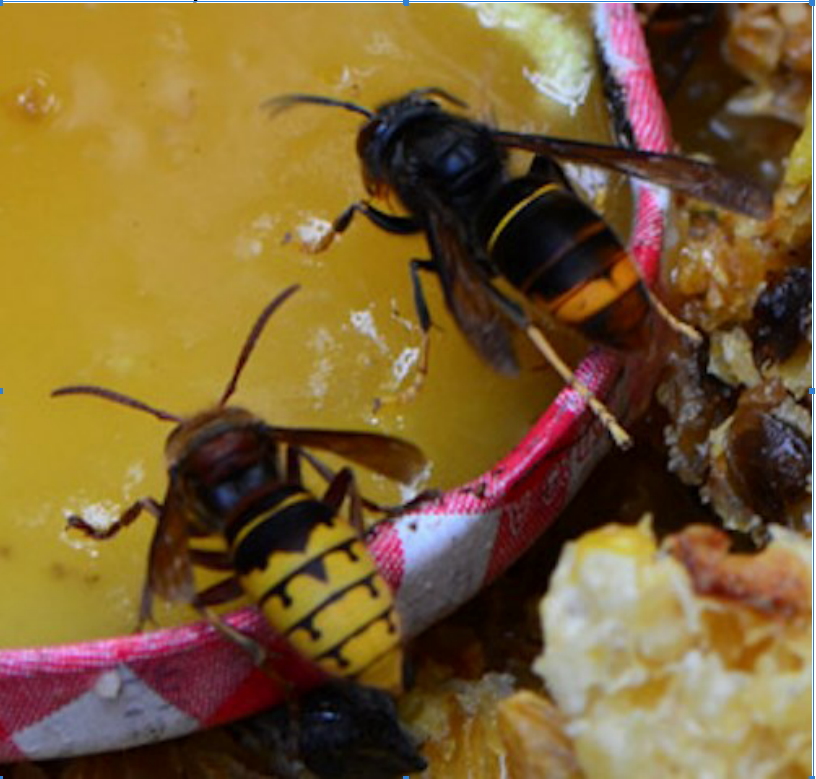
This picture is from Canterbury beekeepers newsletter March 2019
Canterbury Beekeepers

Click here for An Asian Hornet Identification Leaflet from the National Bee Unit

